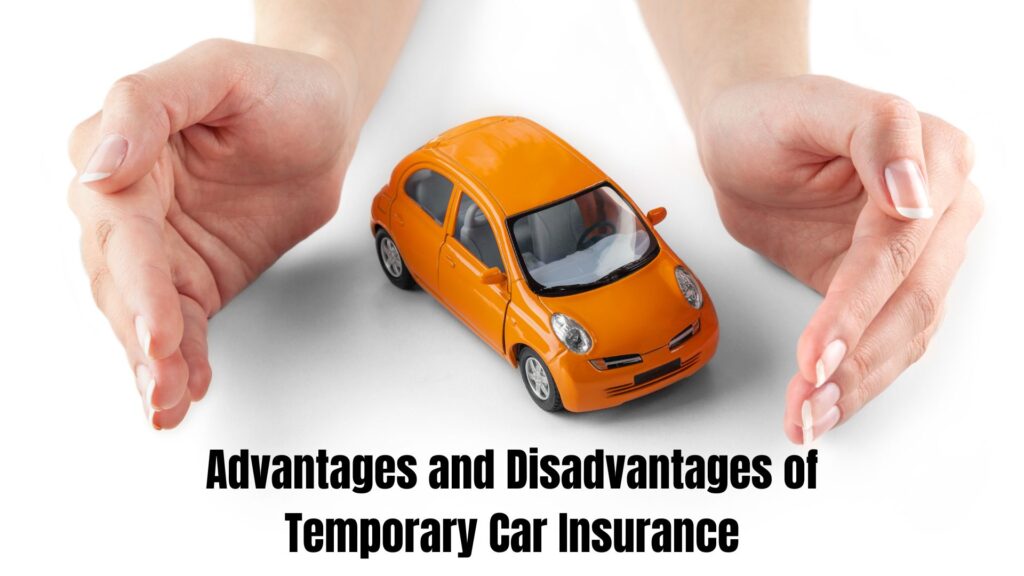Introduction
Car insurance is mandatory for vehicle owners and drivers in the US. But there are times when you may need temporary car insurance. This insurance caters to short-term needs and is extremely useful for those using the vehicle temporarily. In this article, we will discuss in detail how can get temporary car insurance in the US, its process, advantages, and disadvantages, and answer related questions.
What is Temporary Car Insurance?
Temporary Car Insurance protects you for a few days, weeks, or months while you use your vehicle. It is especially useful for situations when you don’t need insurance for a long time.
What situations are suitable for temporary insurance?
- When you’re using a rental car.
- Driving someone else’s car for some time.
- The vehicle is being used for short-term travel.
- Driving in the United States as a tourist or temporary resident.
Can a Tourist Buy Car Insurance in the US?

Image credits: canva.com
Yes, a tourist can buy car insurance in the US. However, there are some conditions for this.
- The tourist needs a driving license, which can be international.
- Insurance companies usually ask for your passport and visa details.
- It is easier to get insurance for a rental car because rental companies provide insurance policies.
Important point:
If you are a tourist, buying temporary insurance may be the best option for you as it caters to your short-term needs.
Consequences of Driving Without Insurance in the US
It is illegal to drive without insurance in the US. If you do, there can be serious consequences:
- Heavy Fines: Every state has different penalties.
- License Suspension: Your driver’s license may be revoked or suspended.
- Legal action: In case of an accident, you may have to face legal action.
- Jail sentence: In some cases, you may face jail time.
Can Temporary Insurance Be Used Permanently?
No, it is not possible to use temporary insurance as a permanent option. It has a time limit and is designed for short-term protection only. If you need long-term insurance, you should buy a regular car insurance policy.
Advantages and Disadvantages of Temporary Car Insurance

Image credits: canva.com
Benefits
- Flexibility: You get insurance only for the time you need.
- Low cost: It is cheaper as compared to long-term insurance.
- Useful for international drivers: Ideal for tourists and temporary residents.
Damage
- Expensive in the long run: Taking temporary insurance repeatedly can get costly.
- Limited coverage: It does not provide comprehensive coverage like long-term insurance.
- Fewer options: Not all insurance companies offer temporary insurance.
Difference Between Temporary and Long-Term Insurance
| Temporary insurance | Long term insurance |
|---|---|
| For short-term need | Provides long-term protection |
| Inexpensive but limited coverage | Expensive but comprehensive coverage |
| Useful for tourists and rental car users | Ideal for permanent car owners |
Prospects of Temporary Insurance in the Future
The popularity of temporary car insurance is growing as it suits the needs of modern lifestyles. With the growing use of ride-sharing and car rental services, this insurance policy may become even more relevant in the future. Insurance companies may also launch new products to make it more convenient and affordable.
Conclusion
Temporary car insurance in the US is an ideal solution for those who need short-term protection. It is extremely useful for tourists, temporary residents, and rental car users. However, it cannot be used as a permanent solution. If you want long-term protection, buy a regular insurance policy.
FAQs
1. Can tourists buy temporary car insurance in the US?
Yes, tourists can buy temporary car insurance in the US. For this, they must have an international driving license and other necessary documents.
2. What is the shortest-term insurance in the US?
Temporary insurance usually lasts from 1 day to a few months.
3. What happens if you drive without insurance in the US?
Driving without insurance can result in heavy fines, driving license suspension, legal action, and jail time.
